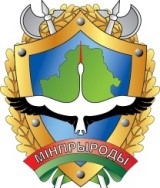Project
“Supporting the Transition to a Green Economy in the Republic of Belarus”
funded by the European Union and implemented by the United Nations Development Programme
Initiative of Green Cross Belarus
“Creating a Network of Innovation and Demonstration Grounds on Farming and Organic Agriculture to Promote Sustainable Land Use, Agricultural Labour among the Young, to Improve School Nutrition and to Get Income by Rural Schools»
The Initiative’s partners: Drachkovo and Vorotovo rural schools, Smolevichi district; Drachkovo and Pekalin village councils; the RUE “Scientific-Practical Center of NAS of Belarus on Farming”; “Bivak” Club and Country Estate.
The initiative is aimed at contributing to the development of the local area through introducing advanced technologies in agriculture, reducing its resource consumption and application of chemicals, establishing sustainable land use as well as promoting organic farming, efficient processing of organic waste, development of farming and school gardens.
Another significant objective is to raise environmental awareness, including issues of safe and healthy food, education of the new generation following “green principles”. In the long view, implementation of this initiative will increase the income of rural schools.
Within the framework of the initiative, it is planned to establish 3 demonstration grounds for sustainable land use and organic agriculture in Smolevichi District: at the educational centre of Green Cross Belarus and on school grounds of Drachkovo and Vorotovo rural schools.
The grounds will become training and experimental bases on which learning and sharing experiences will take place regarding the use of modern technologies: introduction of promising vegetable and fruit plants bred in Belarus; production of biohumus using microbiological preparations and vermi-technologies; application of green manure crops and production of “green” fertilizers; use of solar energy in a bio-vegetarium and a solar power plant; saving water through drip irrigation, etc.
Work on the grounds will be carried out directly with groups of schoolchildren and adults (teachers, farmers, families). Further, the grounds and other interested schools will make a public network and will cooperate through the Internet platform which is being created.
The produced organic food will be used for school meals, participants of educational programs, and also will be sold to interested agricultural country estates, visitors of the grounds and local population.
For more information about the initiative, visit the official website of the Project









